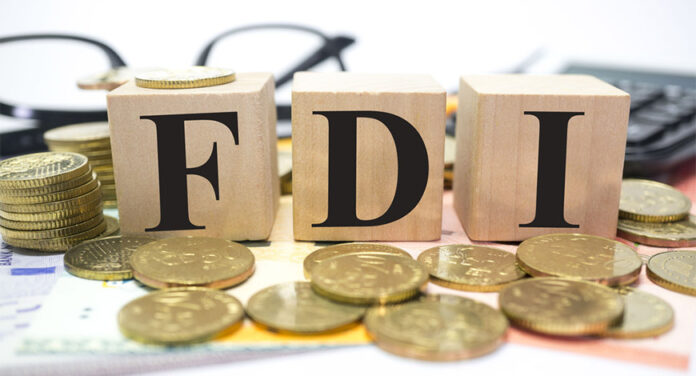*****Only 29 new international investment agreements sealed in 2023
******Investment gap remains wide in developing countries
CHIGOZIE AMADI
Global foreign direct investment (FDI) fell by 2 per cent to $1.3 trillion in 2023 amid an economic slowdown and rising geopolitical tensions, the World Investment Report 2024 has revealed.
The report was released yesterday by the United Nations Trade and Development formerly known as the United Nations Conference on Trade and Development (UNCTAD).
According to the report, crises, protectionist policies and regional realignments are disrupting the world economy, fragmenting trade networks, regulatory environments and global supply chains.
It noted that this undermines the stability and predictability of global investment flows, creating both obstacles and isolated opportunities.
But the report highlighted that the decline exceeds 10 per cent when excluding the large swings in investment flows in a few European conduit economies.
It indicated that overall, FDI flows to developing countries fell by 7 per cent in 2023 to $867 billion, but the decrease varied significantly across regions.
In 2023, 86 per cent of the investment policy measures taken by developing countries were more favourable to investors.
In contrast, 57 per cent of measures in developed countries were less favourable, with restrictions, such as FDI screening mechanisms increasingly used to address national security concerns.
Globally, the number of investment policy measures in 2023 matched the five-year average, with about three quarters favorable to investors.
Investment facilitation reached a record 30 per cent of all measures. Incentives targeted the services sector and renewable energy in particular.
Also, only 29 new international investment agreements (IIAs) were concluded, less than half being traditional bilateral treaties. Reforming older IIAs remains slow, with about half of global FDI still governed by non-reformed treaties, increasing the risk of investor-state dispute settlement (ISDS) cases.
This is two-thirds higher for developing countries and three-quarters in least developing countries (LDCs). Only 16 per cent of global FDI stock is covered by new-generation IIAs.
While greenfield project announcements in developing countries increased by over 1,000, the distribution was uneven, with nearly half in South-East Asia and a quarter in West Asia.
West Africa posted a 1 per cent slide as FDI inflows to Africa declined by 3 per cent to $53 billion.
Greenfield announcements included megaprojects like a green hydrogen project in Mauritania. International project finance fell by a quarter in deal numbers and by half in value.
Flows to developing countries in Asia fell by 8 per cent to $621 billion, with China, the world’s second-largest FDI recipient experiencing a rare decline. India and West and Central Asia also saw significant drops, while South-East Asia held steady.
FDI flows to Latin America and the Caribbean decreased by 1 per cent to $193 billion.
The number of greenfield investment announcements fell, but the value of greenfield projects rose due to large investments in commodity sectors, critical minerals and renewable energy.
Meanwhile, FDI flows to structurally weak and vulnerable economies increased, as inflows to the least developed countries rose to $31 billion, or 2.4 per cent of global flows. Landlocked developing countries and small island developing states also saw increases. But in all three groups, FDI remains concentrated among a few countries.
According to the report, the downturn in project finance affected sustainable development, with new funding for Sustainable Development Goals (SDGs) sectors dropping over 10 per cent, particularly in agrifood and water.
This hampers efforts to achieve the 2030 Agenda and calls for urgent policy action to revamp sustainable development finance, it said, and emphasised that business facilitation and digital government solutions can address low investment by creating a transparent and streamlined environment.
It also highlighted significant growth in online services and information portals, saying such tools also support broader digital government development, benefiting developing nations in particular.
While prospects for 2024 remain challenging, the report stated modest growth for the year remains possible, citing easing financial conditions and investment facilitation efforts in both national policies and international agreements.
“Investments are growing in several global value chain-intensive manufacturing sectors like automotive and electronics in regions and countries with easy access to major markets.
“But many developing countries remain marginalised, struggling to attract foreign investment and participate in global production networks,” the report said.
In his preface to the report, the Secretary-General of the United Nations (UN), António Guterres remarked that investment is the fuel for sustainable development, adding that closing the Sustainable Development Goals (SDGs) and climate financing gap will require an estimated $500 billion of international public finance and $500 billion of
international private finance per year, much of which would be in the form of foreign direct investment.
“But many developing countries are running on empty. Global and regional crises, trade tensions and tighter financing conditions have had a chilling effect on foreign direct investment, which remained subdued in 2023 for a second year in succession,” Guterres said.
Also, in her foreword to the report, Secretary-General UN Trade and Development, Rebecca Greenspan, noted that in a world grappling with global and regional crises, the delicate balance of FDI hangs precariously.
According to her, the World Investment Report (WIR) serves as a
stark reminder that investment, the lifeblood of sustainable development, is not merely a statistic but a lifeline for developing nations, adding that it is the fuel that powers progress towards the Sustainable Development Goals (SDGs) and the 2030 Agenda for Sustainable Development.
Her words: “The challenges we face are multifaceted and interconnected. Geoeconomic fragmentation is reshaping the landscape of global investment. Trade networks are fragmenting, regulatory environments are diverging and international supply chains are being reconfigured.
“These shifts create both obstacles and isolated opportunities, with some countries benefiting from investments in global value chain-intensive manufacturing while others struggle to participate in the global economy.”





















